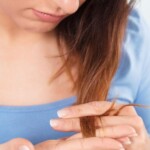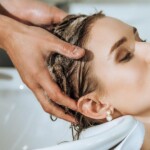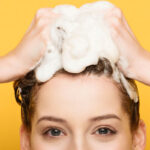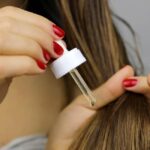Nowadays, many people are looking for quick and convenient hair care solutions. Dry shampoo has become one of the favorite products that allows refreshing the hairstyle without the need for traditional hair washing. However, while it can be a convenient rescue in emergency situations, long-term use negatively affects the health of the hair and scalp.
Trichology, the science of hair and scalp, is gaining increasing popularity among people who care about their health and hair condition. It is worth considering the effects of long-term use of dry shampoo from the perspective of this field. At Piotr Turkowski’s trichology clinic, you can benefit from modern diagnostic tests such as trichoscopy.
What is dry shampoo and what is it made of?
Dry shampoo is a cosmetic product that allows refreshing the hairstyle without the use of water. It is especially popular in situations where there is no time for traditional washing or when we want to extend the freshness of the hairstyle between regular washes. It comes in the form of powder or spray, which can be evenly applied to the hair and scalp.
The composition of the cosmetic may vary depending on the brand, but there are several key ingredients commonly used. These include:
- ingredients that absorb excess sebum — such as corn starch, talc, or rice starch, which absorb natural oil produced by the sebaceous glands. They work like a “mattifying powder” for the hair, eliminating the greasy effect,
- fragrance ingredients — to give the hair a fresh smell, often including essential oils, perfumes, or other aromatic substances,
- volume-boosting ingredients — which lift the hair from the roots,
- fixing ingredients — which help keep the hairstyle in place while providing flexibility and movement to the hair.
The effect of dry shampoo on the scalp varies depending on individual skin conditions and frequency of use. However, long-term and regular use of such products negatively affects the condition of the scalp.

Proper scalp hygiene
Proper scalp hygiene is crucial to maintaining healthy hair and preventing various skin problems and conditions. Long-term use of powder or spray shampoos contributes to adverse effects, primarily product buildup on the scalp, problems related to seborrhea, disruption of the natural lipid balance, and increased risk of inflammation.
Product buildup on the scalp
The sebum-absorbing ingredients present in these cosmetic products can accumulate around the sebaceous glands, hindering the natural cleansing process of the skin. This leads to a buildup of sebum and product residue. It increases the risk of seborrhea, a condition where sebaceous glands produce excessive amounts of oil. Long-term use of dry shampoo can be one of the contributing factors. Seborrhea, in turn, can cause greasy hair, itching, and promote the growth of bacteria and fungi.
Lipid balance
The scalp regulates sebum production to maintain its proper condition. Excessive use of dry shampoo disrupts the lipid balance, as the chemicals in the product affect sebaceous gland activity. As a result, the skin may respond by increasing secretion, which often leads to excessive greasiness.
The impact of dry shampoo on hair structure
The chemical ingredients in dry shampoos also affect the structure of the hair itself, especially when used regularly. These substances may cause loss of the hair’s natural moisture, leading to weakening, brittleness, and difficulties in maintaining proper elasticity.
This mainly applies to ingredients that absorb natural lipids forming the protective layer, such as corn starch or talc. They absorb natural moisture, leading to dehydration of the hair. Consequently, the hair becomes less elastic, more porous, and more prone to mechanical damage.
Elasticity is a key factor in maintaining a healthy appearance of hair. If the hair becomes less resilient, it breaks more easily, becomes frizzier, which negatively affects its overall look. Weakened hair structure contributes to split ends, which become dry and brittle. This requires more frequent trimming, affecting the length and overall appearance of the hairstyle.
Increased risk of scalp irritation
People increasingly turn to a trichologist instead of a dermatologist. A trichologist highlights the increased risk of scalp irritation as a consequence of long-term use of dry shampoo. Various chemicals present in these products can trigger allergic reactions and irritations, especially in people with sensitive skin.
Read more: Trichologist – is it a hair doctor?
This mainly concerns fragrance substances, preservatives, or thickeners that irritate the delicate scalp. People with sensitive skin may experience redness or even itching after using dry shampoo. This leads to overall discomfort and impacts daily well-being.
Moreover, these products may excessively dry out the scalp, making it more prone to flaking. This, in turn, contributes to dandruff and other dermatological issues.
Inhibition of hair growth
The restriction of hair growth is another negative effect of long-term use of dry shampoo. The accumulating cosmetic layer together with excess sebum creates a coating that hinders proper follicle respiration and efficient sebum production. This reduces blood flow to the scalp, which is crucial for delivering nutrients to the hair follicle.
Sebum acts as a natural moisturizer for both the hair and the scalp. It forms a protective barrier that prevents excessive water loss, helps maintain hair and skin elasticity, and prevents dryness. Additionally, it contains antibacterial and antimicrobial substances that protect the scalp from bacterial and fungal infections. This is why trichologists pay special attention to sebum balance. In extreme cases, a trichologist may even tell you that neglecting scalp care and regularly using dry shampoo without proper cleansing may increase the risk of hair loss problems.
The necessity of thorough removal
To avoid the negative effects of long-term use of dry shampoo, it is essential to thoroughly remove the product. Residues contribute to dryness and moisture loss both on the scalp and the hair.
Additionally, product buildup may make hair styling more difficult. The hair may become stiff, hard to manage, or lack natural flexibility.
Impact on the scalp’s microflora balance
The scalp’s microflora balance is a delicate state in which various microorganisms, such as bacteria and yeasts, coexist harmoniously. It plays a key role in maintaining healthy skin and hair. Long-term use of products that clog sebaceous glands disrupts this balance, leading to various problems, especially excessive scalp dryness.
The scalp’s microflora is partly responsible for maintaining the skin’s protective barrier. Dry shampoo, especially when overused, may damage this barrier, making it more vulnerable to harmful external factors.
Additionally, the bacteria on the scalp help maintain proper skin pH. The chemicals in cosmetic products disrupt this balance. Shifting the pH towards more acidic or alkaline values may encourage the growth of harmful microorganisms.
The right proportion of bacteria prevents bacterial and fungal infections. Therefore, long-term use of dry shampoo may weaken the natural skin defense system, increasing the risk of pathological conditions. Some chemicals may selectively influence the growth of microorganisms present on the scalp, leading to the overgrowth of harmful species.
Consultation with a trichologist and scalp assessment
Consultation with a professional is crucial, especially if there are problems with hair, scalp, or overall skin condition. It is necessary to see a specialist — a trichologist.
Book a trichologist appointment in Warsaw
So, if you experience excessive hair loss, itching, burning, or any other discomfort, consult a trichologist. Moreover, if you tend to frequently use dry shampoo, check the condition of your scalp and take early corrective and cleansing measures.
A trichologist will advise on proper hair and scalp care. They may recommend special shampoos, conditioners, or other products tailored to your individual needs and skin problems. The Piotr Turkowski trichology clinic in Warsaw employs a team of specialists who deal with scalp conditions diagnosed with trichoscopy.



